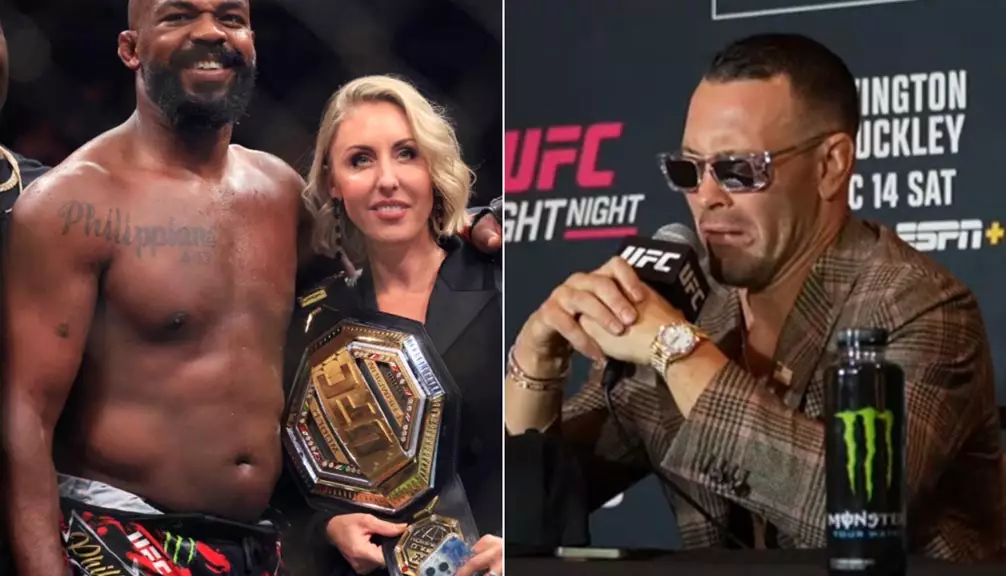In the ever-controversial world of mixed martial arts (MMA), Colby Covington has solidified his reputation as the “King of Cringe,” a title he seems intent on upholding through his outlandish behavior. Covington is scheduled to headline the upcoming UFC on ESPN 63 event against Joaquin Buckley, but rather than focus on training or his opponent, Covington chose to use his media day appearance as a platform to launch a verbal assault on NBA superstar LeBron James. This relentless fixation on political and social issues rather than athletic competition can leave many fans shaking their heads in disbelief.
Covington’s vitriol was sparked by a resurfaced video of LeBron James casually endorsing Sean “Diddy” Combs during an Instagram Live session. The timing was particularly potent, as Combs faces serious legal troubles, including charges of sex trafficking and racketeering. The implications of James’s comments caught Covington’s attention, allowing him to draw a correlation between the NBA star’s social persona and the grave allegations against Combs. Covington’s opening statement was aggressive; he directly questioned James about his apparent connection to Combs and displayed a tendency to conflate personal values with public behavior.
With Covington’s grievance against James rooted in past disputes over political viewpoints—specifically, James’s criticisms of police brutality—his comments quickly morphed from an analysis of celebrity ethics into a personal attack. Such behavior raises questions about Covington’s motivations: is he genuinely interested in social justice, or purely capitalizing on James’s controversies for personal gain and attention?
While Covington’s comments about James generated buzz, his media session veered dangerously away from the spirit of sportsmanship. Instead of discussing his fight preparations and Buckley’s attributes as an opponent, Covington chose to engage in a lengthy tirade against various fighters. He rambled about other notable names like Shavkat Rakhmonov and Khamzat Chimaev, peppering in derogatory remarks with little context or relevance to the upcoming fight. Covington’s scattershot complaints and barbs seem less like a tactical strategy and more about maintaining an image rather than promoting healthy competition.
One wonders about the implications of such behavior on the sport itself. While trash talk is a time-honored tradition within combat sports, Covington’s approach seems rooted more in shock value than in the integrity of the competition. Is this the kind of role model the sport needs, or does it contribute to an increasingly toxic atmosphere that detracts from the genuine athletic prowess of the competitors?
Perhaps the most troubling aspect of Covington’s media day occurred when he was asked about Jon Jones’s recent performance at UFC 309. Instead of providing an analysis of Jones’s fighting capabilities, Covington launched into personal and explicit insults, which only muddied the waters of what could have been a frank discussion about fighting styles and outcomes. By taking potshots at Jones’s romantic history and invoking past arrest records, Covington clearly crossed a line that many would consider inappropriate for a professional athlete representing a serious sport.
His insistence on painting Jones as a “f*cking coward” and “woman beater” does not just raise eyebrows—it invites scrutiny about the standards we hold athletes to. Covington’s method of engagement raises the question: where does one draw the line between personal vendettas and professional rivalry?
As the MMA world gears up for Covington’s return to the octagon, the larger narrative may be less about the fight against Joaquin Buckley and more about Covington’s continued obsession with being the loudest voice in the room. The amalgamation of his political commentary, personal attacks, and abusive language suggests a deeper issue that transcends sports. At a time when social responsibility is highly scrutinized, athletes are expected to serve as more than just fighters; they are seen as representatives of their sport, culture, and sometimes even societal values.
As Colby Covington prepares to face Joaquin Buckley, fans and critics will have to decide what kind of role models they want in the sport. Through incendiary remarks and personal jabs, Covington might draw headlines and attention, but at what cost? Will his approach ultimately serve as a deterrent for true sportsmanship or merely a reflection of a changing narrative in MMA? That, perhaps, remains the most pressing question of all.

